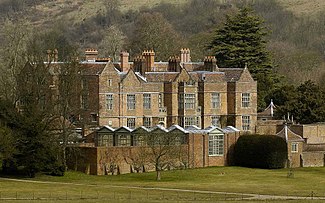On 17 February, the European Commission, meaning Jose Manuel Barroso, appointed João Vale de Almeida as head of the EU's delegation in Washington, DC. He has been Director-General for External Relations since November 2009. One could wonder why he was appointed. Well, he was head of cabinet of Mr Barroso and his personal envoy to the G8 and G20 summits.
Under the Lisbon Treaty, the Commission delegations in third countries will be transformed into "Union delegations” under the authority of the High Representative of the Union for Foreign Affairs and Security Policy. Over 130 delegations of the EU, in more than 150 countries, will be part of the EEAS’s structure. The EU delegations will represent the EU and not just the Commission. They will include EEAS staff as well as staff from relevant Commission services. The EEAS will include officials from the Commission and Council secretariat as well as diplomats from the EU's Member States. It could involve over than 6,000 staff. Before the entry into force of the Lisbon Treaty the head of the Commission delegations abroad were appointed by the Commission but the Commission’s delegations are now EU’s delegations and their heads will be, therefore, “EU's ambassadors.”
Questions regarding institutional arrangements, competences and financing were not answered by the Lisbon Treaty. The organisation and functioning of the Service will be established by a Council decision, acting by QMV, on a proposal from the High Representative, after consulting the European Parliament and obtaining the consent of the Commission. Ms Ashton is, therefore, in charge of planning the new EU diplomatic service. The European Council has agreed that the High Representative will appoint her own staff, including the EU’s ambassadors.
Vale de Almeida, presently, heads the committee in charge of helping Ms Ashton drafting the proposal establishing the EEAS. Ashton is expected to put forward a proposal during March, and the Spanish EU Presidency is planning to reach an agreement in Council by the end of April. Consequently, there are no rules of procedure for the appointment of the EEAS staff in place yet. Mr Barroso took advantage of this so called “transitional phase” to appoint his fellow to run the Union's embassy in Washington. Member States were no consulted and one could wonder if Ms Ashton had any say in the appointment. Obviously, Ms Ashton defended herself saying it was her decision.
Swedish foreign minister Carl Bildt has recently complained about the way the head the EU's delegation in Washington, DC was appointed in a letter addressed to Ms Asthon. He described the appointment of João Vale de Almeida as a "downgrade" for the EU in Washington. He will replace John Bruton whose five-year mandate ended in October 2009. Carl Bildt said "We had an agreement in 2004 when we appointed [former Irish Prime Minister] John Bruton that we needed a political level representative in Washington. Of course you can take the decision to go down to another kind of representative than we discussed some years ago, but I do think that one should consult more on that decision, as it is a political decision (…)." Vale de Almeida has never been elected to office and has been a civil servant since 1982. According to Carl Bildt "This nomination has been done without applying the very principles now under discussion where transparency, member states involvement and, above all, your roles (Ms Asthon) as appointing authority are key elements".
João Vale de Almeida will be answerable to the High Representative, Catherine Ashton, but he will defend Barroso influence making sure that Barroso is the main communicator with the US.

